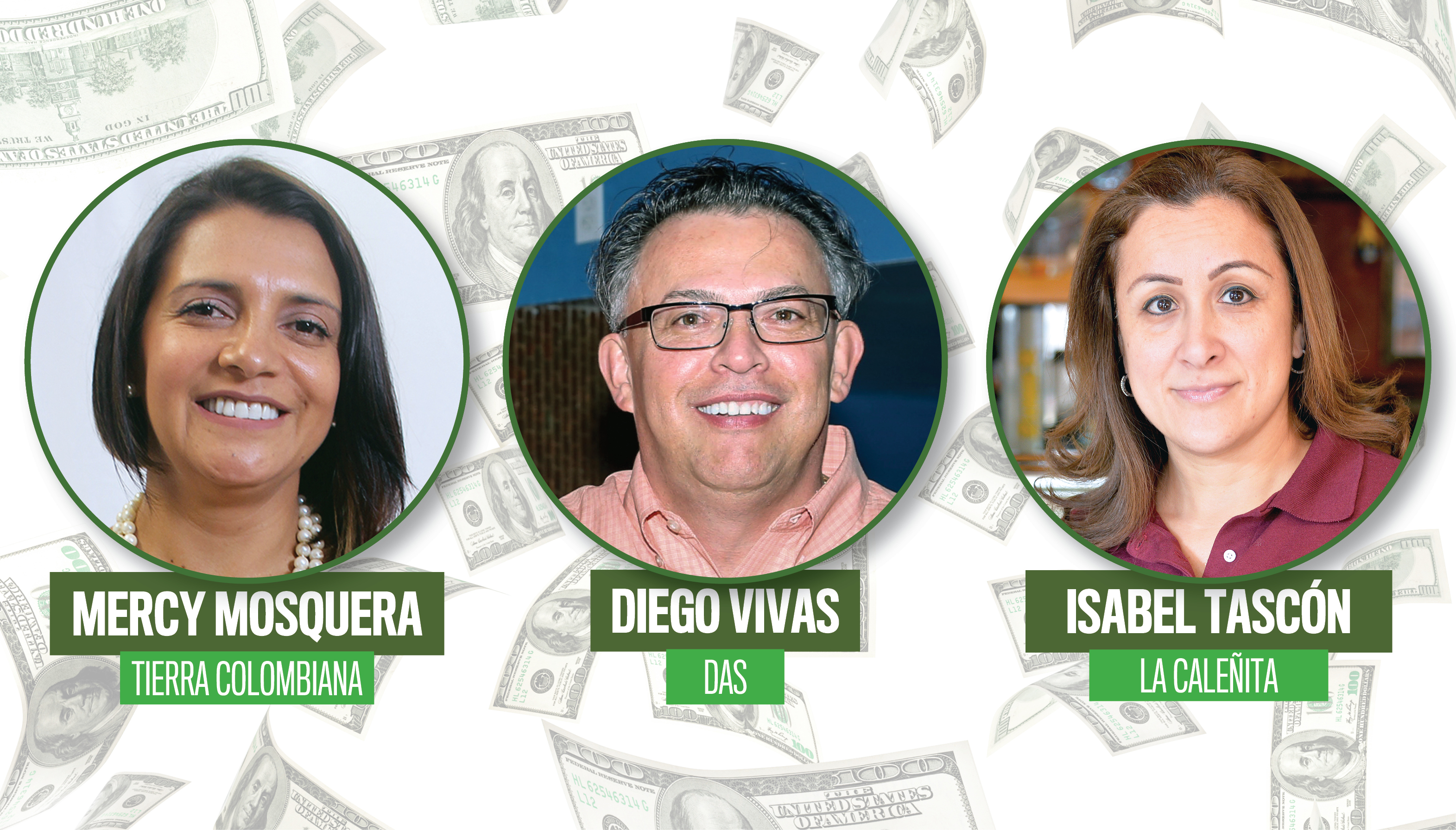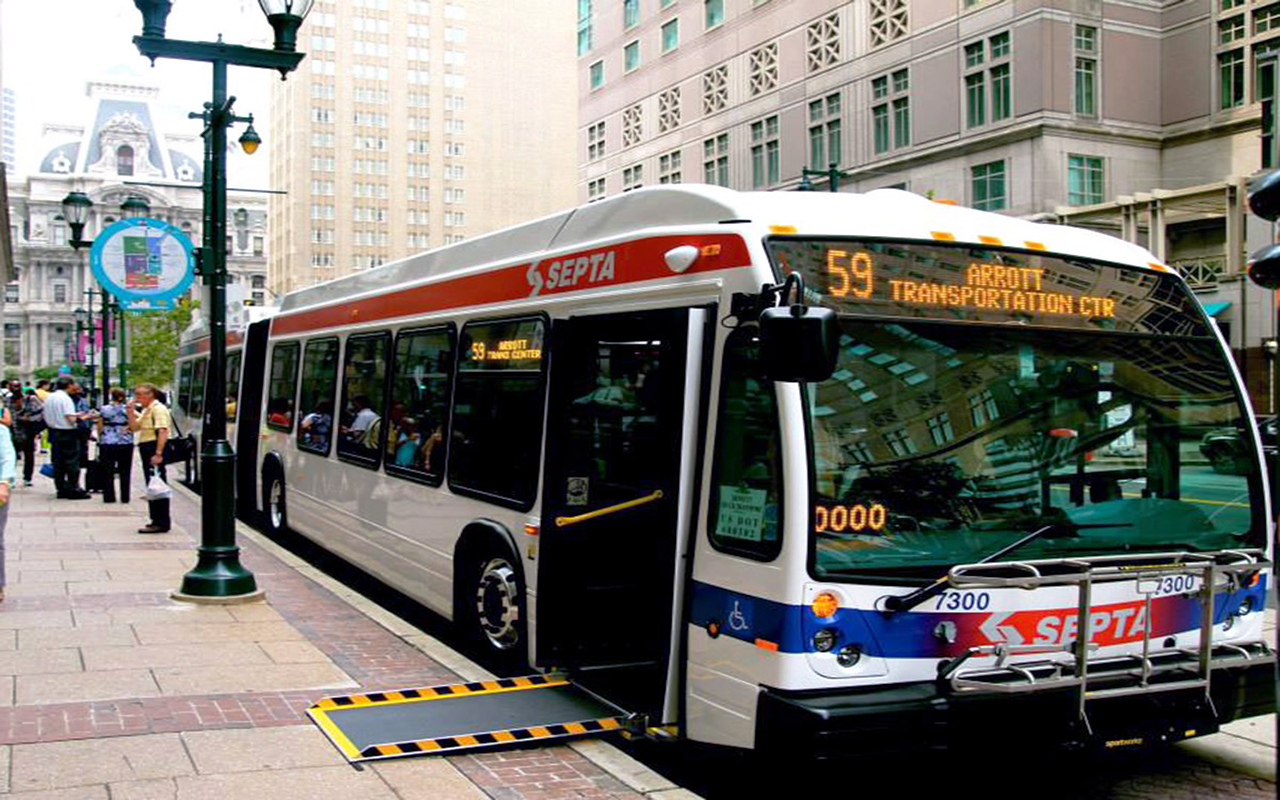
Our businessmen and the elusive American Dream
The fact that the Latino community moves forward in visibility and relevance in Philadelphia, where they represent the 15% of the population, depends less on…
In the State of Pennsylvania, more precisely in the Philadelphia area, there are aids for our businessmen and – at least in theory – access to capital.
However, for those businesses that remain property of Latinos and that help grow our neighborhoods, the access to resources for growth and development it’s still a challenge.
ALDÍA talked with banks, federal organizations and community administrations, and with some of our businessmen, to understand the context, the characters and furthermore, to begin a discussion that’s not frequent among Latinos: How to create economic development and financial self-sufficiency in our communities.
Especially when all the development of the “power of the community” it’s only understood in political terms – non economical – and even so in this phase of effervescence in the electoral campaign.
This is hardly the beginning of a discussion over a complex but urgent subject, specially when the advance of the Latino community depends on it, in visibility and relevance and in a city where at this day the Latinos represent 15% of the population and count on a growing number of small entrepreneurs that seek, mostly on their own, a difficult path towards their financial stability.
The challenges are not only external, but internal as well; the growth of the Latino demography depends on its understanding and overcoming, considering that such numbers imply a great amount of registered voters for the upcoming election. There is where the real and permanent power lies, which represents not only stability but also economic prosperity.
Today, there’s a long way ahead to honor the “drive” that characterizes the Latinos, expressed first of all in his decision to emigrate north, to establish himself with effort, surviving an adverse ambient and aspiring, through his financial freedom, to a better life.
Three entrepreneurs tell their story:
A quest called “Tierra Colombiana”
In 1988 her brother, Jorge Mosquera, and her other brothers that used to own a shoe store on Locus Street, used to go to North Philly to play soccer in the Hunting Park and 9th Park.
When the game was over, they used to pass through a business that used to be own by “La Señora María”:
Tierra Colombiana was then a modest restaurant that worked in the corner of Hunting Park Avenue and 6th, in a building that no longer exists.
María, tired of so many years of hard work administrating her small restaurant, ended up selling the business to Jorge and, meanwhile, teaching him not only how to “run a restaurant” but also about the Colombian gastronomy. Jorge, as his whole family, are from Ecuadorian origins.
Maybe without knowing it, that year began the best and most difficult adventure for Jorge.
Days became 20hrs long (24 during vacations). He was lucky enough to count on a loan to buy the business and he was even luckier when his sister Mercy helped him at the beginning of the 90s decade. Almost without unpacking, she helped him to attend the customers.
With time, the payroll grew from 3 to 80 employees.
Nowadays, Tierra Colombiana is a congregation center for the Latino community in the 5th street and Annsbury, not only as the favorite restaurant for thousands of people, but as a night club with Latin music that attracts hundreds of clients every weekend from all over town.
The building where Tierra Colombiana is located today, covering almost a whole block over the 5th Street, has grown gradually over the past 15 years, becoming a powerful symbol of the entrepreneurial spirit of the Mosquera family and an example of overcoming through the personal effort of a Latino immigrant.
From employee to employer
Diego Vivas’ struggle does not lag behind.
He arrived to this country at age 26 in 1992 to work in “others people’s pizzerias”.
Over time, he ended up buying them, and when he got tired, he founded DAS: a design, printing and distribution company, for restaurant’s flyers.
Don’t be surprised if today you find some of his greatly designed handouts in your mail.
Eventually, Vivas grew from 4 to 30 employees.
María Isabel Tascón, owner of the famous bakery La Caleñita, on 5th, invested a 9 years work product in this adventure, after working in every bakery in the neighborhood, 3 working times, along with her husband’s drive and savings.
She didn’t take any loan because “the debts don’t let me sleep”.
After a decade of fully commitment to her own business, she now counts on 10 employees.
Philadelphia is almost in the lowest ranked in terms of support for small businesses
The Latino immigrants’ thrive, translated into entrepreneurial capacity and prudent administration, is vitally important for the United States.
This push is registered by the Census with a survey directed to the economical growth of minorities and women’s small businesses in the country. This is the link to the 2015 survey: http://www.census.gov/programs-surveys/ase.html
The survey indicates that 17,5% of the enterprises are property of groups currently called “minorities”. Put together, these small groups represent the new majority in the greatest cities of The United States.
Latinos own 31,5% of them; the Asians own 53,4% and the African American own 11,4%.
And in total, women own 19,4%
According to the National Minority Supplier Development Council (NMSDC), in cooperation with the Institute for Thought Diversity (ITD), 12 thousand businesses registered as “minority” produces an income of $400 billions and give more than 2.2 million jobs.
From the 11 largest cities in the country, Philadelphia sadly occupies the second last place, above only Boston. Miami, LA and Houston occupy the first three places
This means that the efforts that Philadelphia may have done to empower, increase the inversion, the strength and the existence of small and medium business in the hands of minorities and women, its way below when compared to the rest of the country.
In fact, Philadelphia is only one-step away to fall in the line of the 11 greatest cities in the country.
The voice of the brave in the battlefront
“There wasn’t a single bank I didn’t go to. They didn’t give me loans, not even for 2,000$ to buy the paper. They didn’t give me money because I had no money”, told us Vivas, owner of DAS.
In his case, his friends and some business in the same neighborhood were the ones that believed in his drive and gave him financial support.
“Over time we created a capital. Our purchasing powers improved and therefore our savings”, he says.
“There were companies that opened their doors for us, and my credit improved as well”.
“Finally, it was Finanta a small business financial company in North Philadelphia, who gave us $80,000 to transport machinery, but we had to put properties as collateral”.
“5 years later we paid and now we can borrow with no problem”, he says.
“We created financial trust”, he adds, and concludes: “with money everybody lends you”.
For Tierra Colombiana it hasn’t been easy either, even though the prosperity of the business is obvious to whoever visits.
“We’ve had to reach a higher rate to keep growing and give jobs to our community”, says Mercy Mosquera.
“If they lend you, you have to give everything you’ve got as collateral”, she highlights.
“Like Vivas, I think that if I didn’t needed the money I wouldn’t be asking for a loan”, points out Mercy.
“We’ve received the refusal many times”, reveals Mercy referring to the requests they have maid to local banks.
“When we had to ask credit for referral, we didn’t even receive a letter. When we looked for banks, like it happened in 2007 for the renewal of Tierra, the Citibank was the only one to support us even though we had accounts in Wells Fargo and Wachovia”, tells the administrator of Tierra.
María Isabel, happily after receiving a grant from the Chamber of Commerce to renew her business, she told us “the only support that I’ve received form the city is now that I’ve been given new signs”.
The PIDC $3 million fund
Vivas spoke frankly:
The City resources “only work for those who have saved some money”.
“3 or 4 years ago, the Treasurer of the State of Pennsylvania went to the neighborhood and they said there were $20 million” to lend. Only one million was available for loans, “the list of requirements was endless”, he said.
The financial opportunities on a lower scale show up frequently, but they’re usually insufficient to produce the development to a higher scale that our businesses are ready to jump for.
A couple of weeks ago, the Citizens Bank announced a society with the Philadelphia’s public-private economic development corporation (PIDC), to support the development of small businesses with a fund that’s really a $3 million loan.
According to Wanda Speight, Vice-President of Financial Services in PIDC, “the goal is to help businesses with a very small rate, ensuring the investment in every zip code”.
Speight added that in PIDC they were working hand to hand with the Philadelphia Chamber of Commerce (GPCC) who reaches all the businesses in town.
Speight commented that they were working as well with the Hispanic Chamber of Commerce, the Asian Chamber of Commerce, and the Northeast Chamber of Commerce, Septa, PECO, Comcast and other educational institutions.
The GPHCC, however, found out about PIDC plans through an article published in philly.com and Finanta knew through this media, during our interview for this article.
Speight explained that many banks have a minimum rate for the approval of a credit. “When we look this score we do it in a more comprehensible way, to determine which is the real problem”.
“Many times a business doesn’t count with enough floating rate because his owner is more focused on how to pay the bills”, she says.
“Other times, they pay their bills using credit cards or similar systems and we know what this means for a rate of at least 25%, which makes it really difficult to keep up with the payment”.
The entrepreneur’s job
To understand the other face of the problem, there are certain factors that affect our businesses, and we should start by some definitions.
“A small business its not the same as a micro business”, explains Luis Mora, President of Finanta.
“A micro business has from 2 to 6 employees, tops. A micro is a regular corner-shop that employs only 3 people. Although micro, the administration of small federal businesses has established the micro loan from $50 thousand down. To access there are several requirements”, he says.
The majority of our businesses are micro; family of new immigrants businesses”, adds.
On her side, Varsovia Fernández, Vice-President of the Customers Bank, specialized in small businesses, “the small companies have a greater structure, better financial management and they’re better informed about the financial system, having a clear description and employing people with experience and talent”.
Antonio Leta, Director of the Pennsylvania SBA East Office said that the truth is that “many times the owners of the businesses don’t want to grow”.
“They feel comfortable with the income for their families and they don’t see the need in taking risks. There are others that want to grow but they have problems to access credit because they can’t prove any gain or the business it’s too young and there isn’t a financial record or collateral”, adds Leta.
Jennifer Rodríguez, CEO of the Hispanic Chamber of Commerce of Philadelphia commented that “our small businesses don’t always innovate and sometimes they don’t even have access to technology”.
“The regulations and the government’s laws don’t always benefit them; there are language barriers and problems to learn and understand the new rules”, says Rodríguez.
Luis Mora tells his own anecdote about the business candidates that have come to his organization seeking for help:
“It has happened that they come here looking to start a business, but some just disappear and when you keep in touch you find out they found a job”, said Mora.
Sometimes, “even though the seed of the businessman is there, it’s the drive to work what pushes them to open a business”.
Mora suggests that the “Ideal is to begin to work, settle some savings to contribute to the credit and start a financial record”.
There are other circumstances that are not always positive:
“The lack of knowledge of the importance of having the documents in order or the habitude of not wanting to reflect the reality in the tax return, makes it difficult to access financing, being unable to prove repayment capacity”, voices Will González, CEO of Ceiba.
“Not considering the accountants in the neighborhood that don’t provide good advices in an unprofessional posture that keeps our growth low”, says González.
There are some tricks that can, however, help.
“In the community there are many real state businesses, and investing in such is better than to put the money in the stock market.” Says Varsovia Fernández.
“If I have a shop, why should I pay the rent? Why shouldn’t I buy the building and pay my rent that way? Thus, my income grows and I have assets, I have collateral. I can go to the bank and ask a refinancing of my debt. Having all the money liquid it’s not necessarily the best for the family or for the business”, Customers Bank Fernandez suggests.
But even with collateral, it’s not easy to guarantee the approval of the loan.
The doors aren’t opened yet for Latino businesses
“In the 90s there wasn’t the support that there is today, even though I think that there isn’t a 100%”, says Mercy Mosquera.
“We have suffered the closed doors to small business and we Latinos still don’t receive what we need from the banks”, adds.
“Jorge has been through his refusals despite the stability of Tierra”.
He has had to work with his own resources.
He bought Mixto in 2008 with his income, there wasn’t support”, remembered Mercy, thankful of coming from a family such as many of ours, with a high sense of morals, ethics and an incredible strength.
Diego Vivas, on his side, has created a second company in which he is a partner. If you look up the App Bites you’ll realize how our talent has no boundaries.
Mary Isabel Tascón from La Caleñita, tells us that in her case, “everything comes from the business”.
The business has given her the opportunity to invest in the house of her dreams and acquire collateral.
However, the possibilities for the business growth, if she wanted to, are blocked due to the lack of access to external capital.
Education is (still) the key
To Jennifer Rodríguez, the CEO of the Hispanic Chamber of Commerce, the education is key:
“An important part of our mission is to educate owners and businessmen regarding the best practices and efforts, to help them grow to keep up with the main markets”. Says Rodríguez.
For Mora, it’s a process:
“The individuals are constantly changing and this makes the corporate community to change as well. They realize that there’s an individual effort to be made and avoiding the entrepreneurs to ask loans to informal individuals is very important, because they charge from 2 to 7% monthly”.
“It’s a loan that can reach an 84% of interest a year, and that’s too high”, warns Mora.
For Leta, representative of the SBA, “the fact that people come here to open up a business in our country, supporting the community through their success, its good for the heart of America”.
Although this life is a process, we need the financial system to open the window a few inches so fresh air could come in for so many entrepreneurs that only need a wink to make the neighborhood a development point.
Our micro and small businesses would have to transform their mentality so that all that’s left to haphazard its luck.
The gap between the 17% of the businesses owned by women, Afro Americans, Asians and Hispanics – that have contributed substantially to the national economy - and the white men, is considerable (according to the Survey of Business Owners Pew Research, 2012).
The United States of America have always been proud of being the refuge to immigrants from all over the world that have found here the opportunity for progress that was not possible in their home countries.
The multigenerational efforts, propelled by immigration waves through the last 2 centuries and a half, have created the most developed economy of the planet.
For the Latinos, the new immigrants on the 21st Century, the “American Dream” of establishing through an entrepreneurial effort in a new country, shouldn’t be so elusive.
SOURCES OF FUNDING
SBA
Information shared by Antonio Leta:
- In 2015, 8 million dollars where lent to the Latino community
- An average of $242,000 by loan
This organization didn’t shared data per minority. According to them, the bank that lends the money is sometimes reticent to include the demographic information.
By the end of the fiscal year, on September 30th, SBA made 1.600 loans for a total of 565 million dollars in the area of 40 counties.
“Our area is making much more in loans of the SBA than the national average”, said Leta.
https://www.sba.gov/offices/district/pa/king-of-prussia
PICD
Data provided exclusively for ALDÍA by Jessica Carlter, Vice-President of Marketing and communications of PIDC, explained this way:
From the 85 loans given in 2015, 48 where made to minorities.
- 38% to women business owners
- 52% to African American
- 16% to Asian-Pacific
- 10% to Hispanic
GPHCC (The State of Hispanic Business)
On its last report: Latinos produce annually more than 600 million dollars and they employ more than 18 thousand people.
http://philahispanicchamber.org
FINANTA
Data provided by their President.
Our profile (since 1995)
$16.6 millions in assets
$47 millions in loans
1,500+ jobs
40.000 hours of credit training
1,300+ loans from $400,00 to $3.3 millions
1,2% non recovered capital average
Our demographic statistics
94% Minorities
69% Immigrant
50% Women
Our mission
FINANTA is a financial institution with no lucrative profits, dedicated exclusively to provide loans and credit training to small enterprises; family’s first home or regular consumers in the metropolitan area of Philadelphia, including Berks, Bucks, Camden, Chester, Delaware, Lancaster and Montgomery counties.
CEIBA
Promotes the development and the economic integration of the Latino community in Philadelphia through collaborations, support and advocacy, in order to improve everyone’s housing. CEBA has different programs in the Housing Counseling, Free Tax Preparation and Savings Accounts.
http://ceibaphiladelphia.org/es











LEAVE A COMMENT:
Join the discussion! Leave a comment.